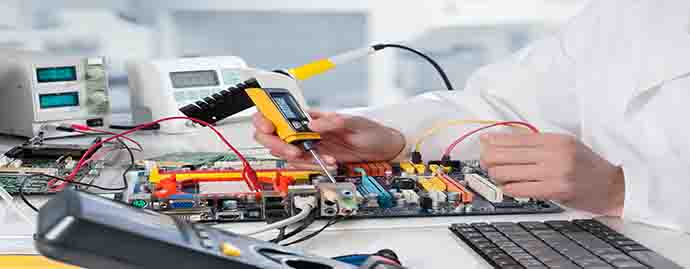| Start Date | End Date | Country | City |
|---|

 +966 920007771
+966 920007771

Objectives
- Upon completion of the course participants will be able to:
- Specify protection requirements for motors
- Maintain electrical motors o Specify speed control requirements for motors
- Understand essentials of motors and drives
- Detail the main issues with testing of motors
- Prevent or at least minimise motor bearing failure
- Troubleshoot and fix faults on motors and drives
- Interface control circuits of motors with PLC’s/DCS’s
- Reduce downtime on electrical motors
- Improve plant safety
- Improve plant throughput o Reduce your spares usage and requirements
Outlines
Day 1:
FUNDAMENTALS OF MOTOR TECHNOLOGY
- Basic principles of rotating electric machines
- Fundamental principles of speed control
- Efficiency, torque, inertia, horsepower and power factor
- Torque-speed curves
- How the motor produces torque
- Types of motors
MOTOR THEORY, CONSTRUCTION AND MAINTENANCE
- Basic construction and physical configuration and windings
- Principles of operation and performance
THREE PHASE AC INDUCTION MOTORS
- Components
- Theory of operation
- Induction motor design
- Duty cycles
- Insulation and cooling requirements
- Starting methods
- Selecting motors
- Maintenance of AC machines
- Types of faults, fault finding and testing of AC machines
- Testing instrumentation
Day 2:
PROTECTION OF AC MOTORS
- Protective devices
- Thermal overload
- Over current/overload
- Under-voltage/over-voltage
- Under frequency
- Current unbalance or negative phase sequence
- Earth fault protection
- Stall protection/acceleration time/start up supervision
- Voltage controlled or restrained over current
- Protection settings
Day 3:
SPEED CONTROL OF AC MOTORS
- Introduction to variable speed drives or power electronic converters
- Types and designs of variable speed drives
Maintenance of Electric Motors
- Maintenance strategy
- Preventive maintenance
- Maintenance records
- Servicing schedule
Day 4:
TROUBLESHOOTING MOTORS
- Most Common Motor Problems
- Electrical Problems
- Testing Windings for Shorts, Opens and Ground Faults
- Phase Unbalance
- Mechanical Problems
- Phase Rotation Testing
Day 5:
TROUBLESHOOTING CONTROL CIRCUITS
- Relays, Motor Starters and Control Devices
- Reading and Interpreting Ladder Diagrams
- Power Loss
- Control Circuit Industrial Applications
- Electric Motor Drives
- Solenoid-Operated Valves
- Heating Elements
Who Should Attend
Anyone associated with the use of electrical motors in the industrial or automation environment. Typical personnel who would benefit are:
- Plant Engineers
- Instrument Technicians
- Operations Personnel
- Electrical Maintenance Technicians
- Instrument and Control Engineers
- Process Control Engineers
- Mechanical Engineers
- Service Technicians
- Maintenance Personnel
- Electrical Maintenance Supervisors
Duration
5 Days










